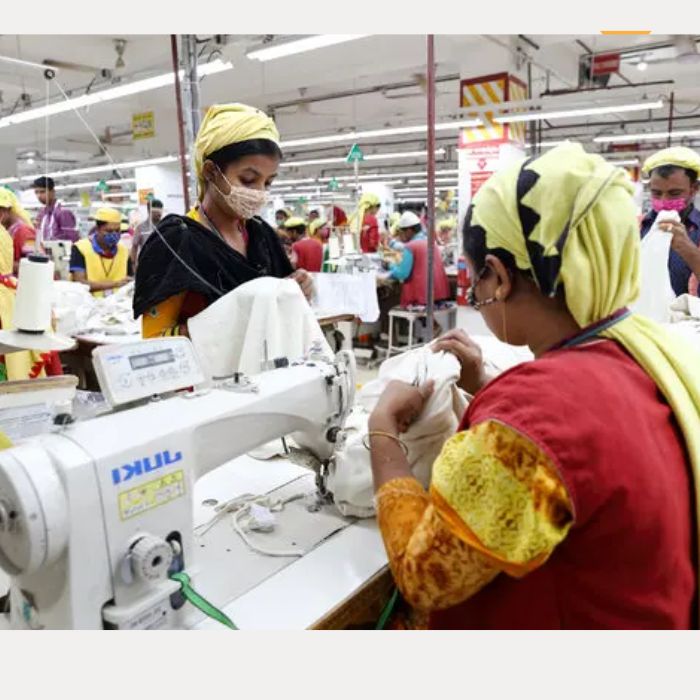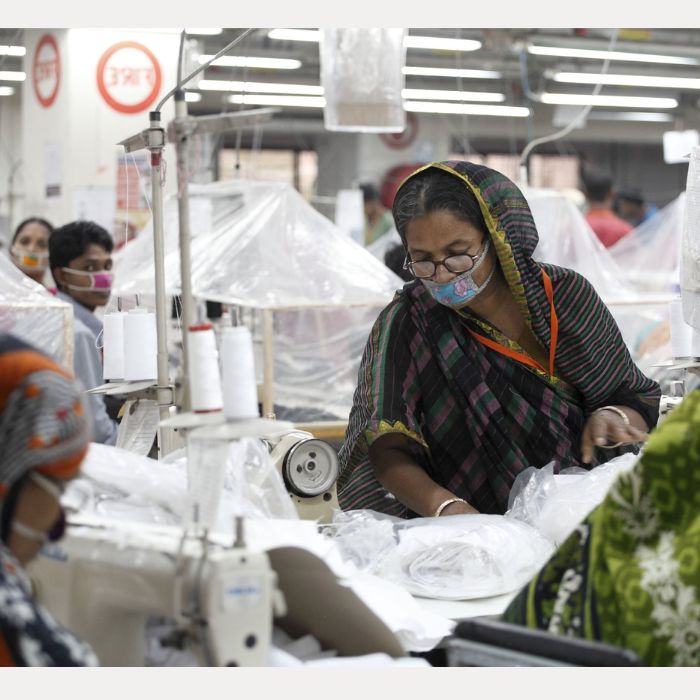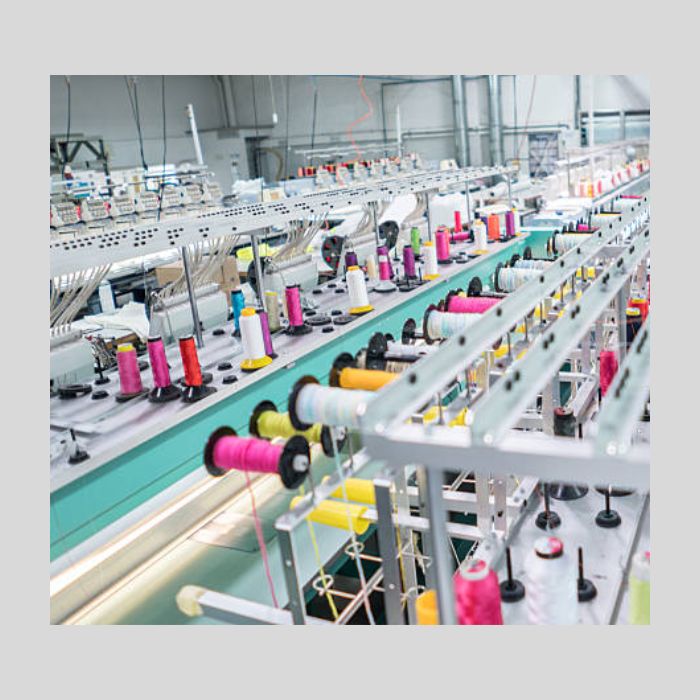The rise of Bangladesh textile factory for wholesalers
For wholesalers seeking an edge in a competitive market, partnering with Bangladesh textile factory offers a wealth of opportunities and advantages. This article explores the landscape of factories and uncovers the reasons why they have captured the attention of wholesalers.
Contents
- 1. Advantages and challenges of working with Bangladesh textile factory
- 1.2. Challenges of working with Bangladesh textile factory
- 2. Key factors to consider when choosing a Bangladesh textile factory
- 3. How to identify reliable Bangladesh textile factory
- 4. Vinaz Garment: A suitable alternative for Bangladesh textile factory
1. Advantages and challenges of working with Bangladesh textile factory
Embracing the vibrant landscape of Bangladesh textile factory presents wholesalers with a tapestry of opportunities, blending competitive advantages with unique challenges in the pursuit of growth and success in the global textile market.
1.1. Advantages of working with Bangladesh textile factory
With a myriad of advantages awaiting wholesalers, venturing into the realm of Bangladesh textile factory offers a promising gateway to affordability, quality, and an abundance of skilled resources, propelling businesses toward unmatched opportunities in the ever-evolving world of textiles.
- Competitive Pricing and Cost-effectiveness: Bangladesh textile factory offer competitive production costs, making it an attractive option for wholesalers looking to maximize their profit margins while offering affordable products to consumers.
- The abundance of Skilled Labor and Production Capacity: The country has a large pool of skilled and experienced workers, enabling factories to efficiently handle bulk orders and meet high production demands.
- Comprehensive Range of Textile Products: Bangladesh textile factory is versatile, producing a wide range of textile products, including garments, fabrics, and home textiles, catering to the diverse needs of wholesalers.
- Compliance with International Quality Standards: Many established Bangladesh textile factory adhere to international quality standards, ensuring that the products meet or exceed the expectations of wholesalers and end consumers.
- Favorable Trade Agreements: Bangladesh benefits from various trade agreements, granting preferential access to several major markets, which can lead to reduced import tariffs for wholesalers operating in those regions.
- Rising Focus on Sustainability: With an increasing emphasis on sustainability, many Bangladesh textile factory are adopting eco-friendly practices and obtaining certifications to cater to the growing demand for sustainable products.
In the rich fabric of collaboration with Bangladesh textile factory, wholesalers can weave a prosperous tapestry of competitive pricing, compliance with quality standards, and a diverse range of textile products, securing their position at the forefront of the industry’s dynamic landscape.
See more about:
Turkey clothing factory and things need to know
UK clothing factory and useful information for business
1.2. Challenges of working with Bangladesh textile factory
Amidst the allure of Bangladesh textile factory lie distinctive challenges, calling for wholesalers to thread their way through language barriers, supply chain complexities, and cultural sensitivities to forge resilient partnerships in this thriving textile landscape.
- Supply Chain Disruptions: Geopolitical factors, natural disasters, or other unforeseen events can disrupt supply chains and lead to delays in production or shipment, affecting wholesalers’ ability to meet market demands.
- Distance and Time Zone Differences: For wholesalers located in distant regions, coordination and response times may be impacted due to the physical distance and time zone variations.
- Labor and Compliance Issues: While many Bangladesh textile factory uphold ethical practices, some may face challenges related to labor conditions or compliance with international labor standards, requiring wholesalers to conduct due diligence when selecting partners.
- Product Quality Control: Ensuring consistent product quality can be a challenge, especially when working with multiple Bangladesh textile factory. Wholesalers must implement robust quality control measures to maintain high standards.
By navigating the intricate challenges of working with Bangladesh textile factory with diligence and adaptability, wholesalers can unravel a tapestry of growth and success, fostering enduring collaborations that elevate the textile industry and transcend geographical boundaries.

Advantages and challenges of working with Bangladesh textile factory
2. Key factors to consider when choosing a Bangladesh textile factory
Selecting the right Bangladesh textile factory is crucial for wholesalers to establish successful and enduring partnerships. To make an informed decision, consider the following key factors:
- Reputation and Track Record: Research the Bangladesh textile factory’s reputation in the industry and its track record of delivering quality products on time. Look for testimonials and reviews from other clients to gauge their reliability and customer satisfaction.
- Product Specialization and Customization Capabilities: Assess whether the Bangladesh textile factory specializes in the type of textile products you require. Additionally, inquire about their ability to accommodate customizations and design modifications to meet your specific needs.
- Production Capacity and Lead Times: Evaluate the Bangladesh textile factory’s production capacity to ensure they can handle your order volume efficiently. Discuss lead times to understand their ability to deliver products within your required timelines.
- Quality Control Measures and Certifications: Inquire about the Bangladesh textile factory‘s quality control processes to ensure consistent product quality. Look for relevant certifications that indicate compliance with international quality standards.
- Ethical and Sustainable Manufacturing Practices: As sustainability becomes increasingly important, verify whether the Bangladesh textile factory follows ethical labor practices and sustainable manufacturing processes. Seek transparency in their commitment to environmental and social responsibilities.
- Communication and Language: Effective communication is vital for a successful partnership. Ensure that the Bangladesh textile factory representatives can communicate fluently in a language that both parties understand.
- Location and Logistics: Consider the Bangladesh textile factory’s location in relation to your business operations. Proximity can impact shipping costs and lead times, especially if you prefer quick and cost-effective delivery.
- Financial Stability and Payment Terms: Partnering with financially stable Bangladesh textile factory reduces the risk of production delays or disruptions. Discuss payment terms that align with your financial capabilities.
- Sample Request and Product Evaluation: Request samples of their products to evaluate the quality and workmanship. Conducting product testing can help ensure that the Bangladesh textile factory meets your quality requirements.
- Flexibility and Problem-solving Ability: Assess the Bangladesh textile factory’s flexibility in handling unforeseen challenges and its ability to provide solutions to unexpected situations that may arise during production.
By carefully considering these key factors, wholesalers can make well-informed decisions and choose a Bangladesh textile factory that aligns with their business objectives and values, setting the stage for a successful and mutually beneficial partnership.
3. How to identify reliable Bangladesh textile factory
Identifying a reliable Bangladesh textile factory requires thorough research and assessment. Here are essential steps to help you find a trustworthy and reputable partner:
- Research and Referrals: Conduct extensive research on Bangladesh textile factory through online directories, industry publications, and trade associations. Seek referrals and recommendations from industry peers or trusted business contacts.
- Factory Visits (if possible): Whenever feasible, visit the Bangladesh textile factory in person to evaluate their operations, production processes, and working conditions. An on-site visit allows you to assess the factory’s capabilities and verify its claims.
- Reputation and Track Record: Look for Bangladesh textile factory or Bangladesh clothing manufacturer with a strong reputation and a proven track record of delivering quality products on time. Check client reviews and testimonials to gauge their reliability and customer satisfaction.
- Communication and Language: Effective communication is crucial for a successful partnership. Ensure that the Bangladesh textile factory representatives can communicate fluently in a language that both parties understand.
- Ethical and Sustainable Practices: Inquire about the Bangladesh textile factory’s labor practices and environmental initiatives. Choose a factory that follows ethical standards, provides safe working conditions, and embraces sustainable manufacturing practices.
- Product Samples and Quality Evaluation: Request samples of the Bangladesh textile factory’s products to assess their quality, design, and craftsmanship. Thoroughly evaluate the samples to ensure they meet your standards and align with your brand’s image.
- Certifications and Compliance: Verify whether the Bangladesh textile factory holds relevant certifications, such as ISO, WRAP, or OEKO-TEX, indicating adherence to international quality and ethical standards.
- Financial Stability and Business Experience: Partner with financially stable Bangladesh textile factory that have been operating for a considerable period. Stability and experience indicate a lower risk of production disruptions.
- Flexibility and Adaptability: Look for a Bangladesh textile factory that can accommodate changes, handle customizations, and address unexpected challenges. A flexible partner can better cater to your specific needs.
- Transparency and Contracts: Work with Bangladesh textile factory that demonstrate transparency in their processes, costs, and contractual terms. Ensure that all agreements are documented in clear and comprehensive contracts.
- Supply Chain Management: Assess the Bangladesh textile factory’s supply chain management practices to ensure they can consistently deliver products on time and handle potential supply chain disruptions efficiently.
- Responsiveness and Customer Service: Evaluate the Bangladesh textile factory’s responsiveness to inquiries and their level of customer service. A reliable partner should be communicative, receptive to feedback, and dedicated to meeting your needs.
By carefully considering these factors and conducting due diligence, you can identify a reliable Bangladesh textile factory that aligns with your business requirements and values. Building a strong and trusted partnership with the right factory will pave the way for successful and sustainable collaborations in the textile industry.

How to identify reliable Bangladesh textile factory
4. Vinaz Garment: A suitable alternative for Bangladesh textile factory
Vinaz Garment emerges as a compelling and suitable alternative to a Bangladesh textile factory. With a proven track record of delivering top-notch textile products and a commitment to quality and ethical practices, Vinaz Garment presents a promising choice for wholesalers seeking reliable and innovative manufacturing solutions.
Their user-friendly website, responsive communication, and dedication to sustainability make them a compelling option for those seeking a reliable manufacturing partner outside of Bangladesh’s textile industry.
Besides, With its array of textile manufacturing services and commitment to quality, Vinaz Garment presents a compelling choice for wholesalers seeking a reliable and innovative production partner.

